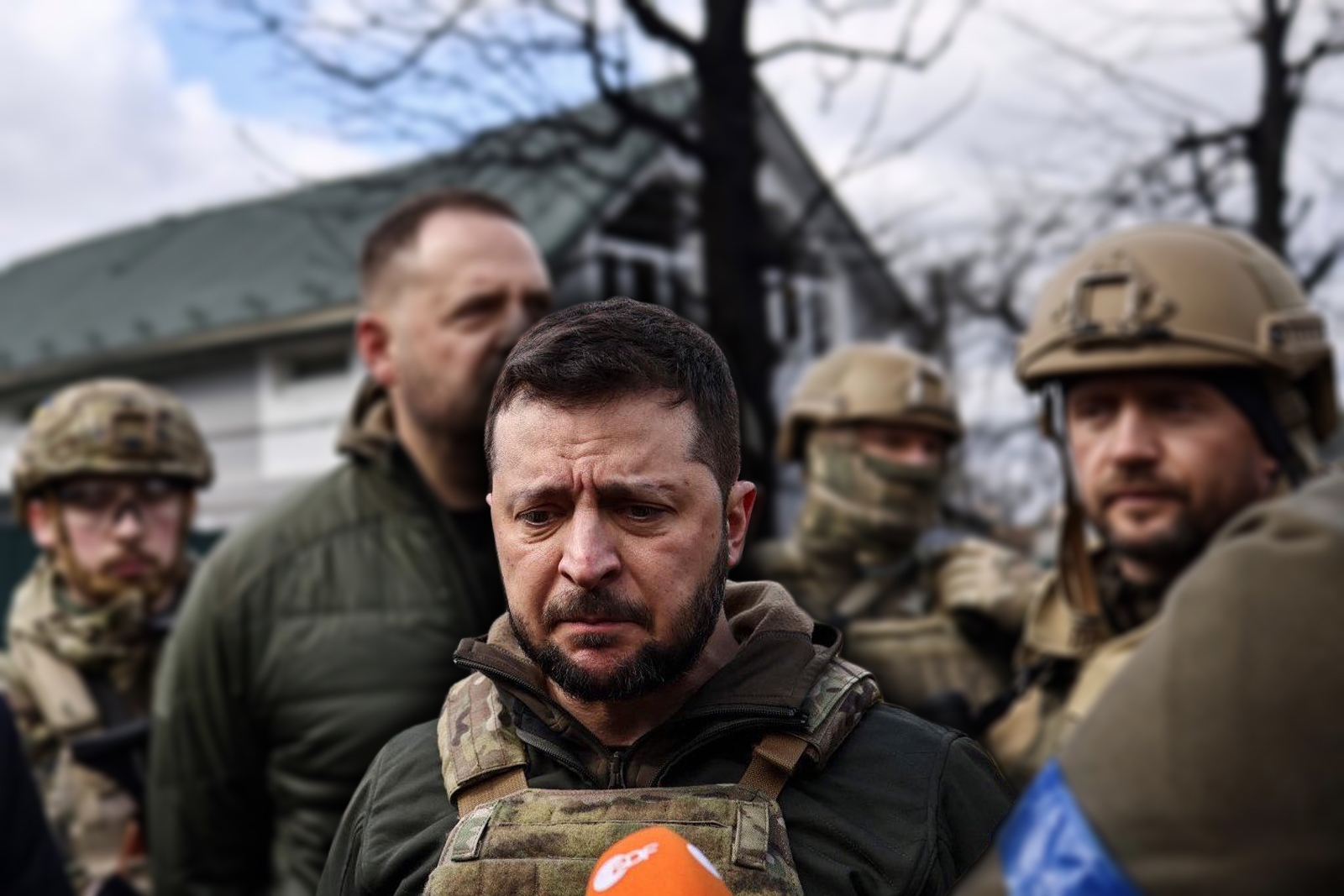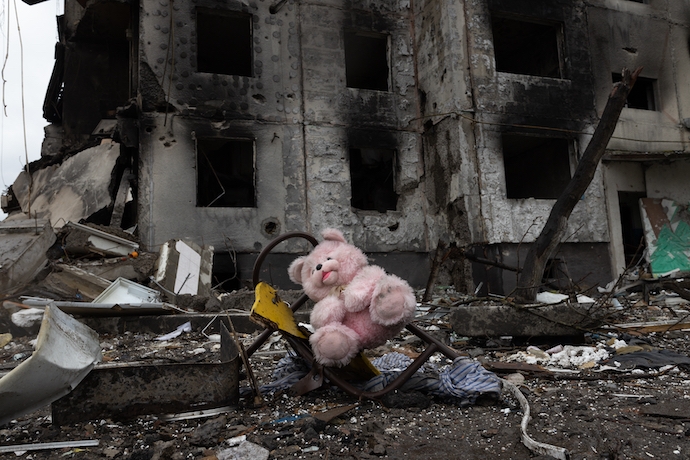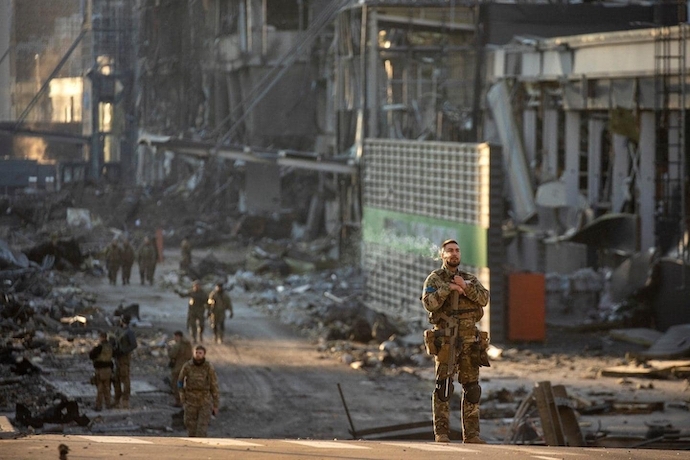
Biden was Right to Call the Bucha Massacre a Genocide
As April 7 marked Rwanda’s day of remembrance for the genocide against the Tutsi, we are reminded that genocide takes place when the world refuses to call things what they are and waits to take action.
The atrocities committed in Bucha and Irpin and the indiscriminate shelling of Mariupol are just the tip of the iceberg of what Russian forces have done in Ukraine. We must call these acts what they are—genocide—to better shape U.S. foreign policy and help Ukrainians in this fight for their sovereignty and livelihoods. The rest of the world should follow President Biden’s lead and show that it can learn from its mistakes with Rwanda by labeling the war crimes in Ukraine a genocide, increasing military support for Ukraine’s self-defense, and applying tougher sanctions.
President Biden asked about labeling Russia’s invasion of Ukraine “genocide”:
“I called it genocide because it’s become clearer and clearer that Putin is just trying to wipe out the idea of even being able to be a Ukrainian.” pic.twitter.com/E90RLGb374
— The Recount (@therecount) April 13, 2022
The Rwandan genocide took place within the context of the country’s civil war between the exiled Tutsi minority and Hutu-majority government that began in 1990. The fragile peace ended in 1994 with the assassination of President Habyarimana, and the next day on April 7, the genocidal killings began.
Paramilitaries, citizen militias, and ordinary Hutu who went through months of indoctrination took to the streets, killing Tutsi and moderate Hutu with rifles and machetes. The onslaught lasted 100 days, and it is estimated that 800,000 people were killed in the genocide. Throughout that time, the international community condemned the violence and war crimes, despite having knowledge that the situation on the ground was a premeditated genocide. Their failure to acknowledge the onslaught as such and provide the UN mission with the resources it needed led to botched peacekeeping efforts and the propagation of genocide.
The U.S. shielded itself from its responsibility to intervene to stop the massacre in Rwanda and there is a danger that the world may take this same approach in Ukraine by hiding behind the semantics and narrow technicalities of the definition. The United Nations Genocide Convention adopted in 1948 defines genocide as “acts committed with intent to destroy, in whole or in part, a national, ethnical, racial, or religious group.” Proving genocide is a difficult task, as it calls for evidence as well as intent. Waiting for legal analysis wastes precious time that must be used to protect those at risk.

The evidence of the massacres paired with Russia’s increasingly genocidal rhetoric are enough to suggest genocide is happening before our very own eyes. As President Biden stated, “I called it genocide because it’s become clearer and clearer that [Vladimir] Putin is just trying to wipe out even the idea of being Ukrainian.” Refusing to label the situation as such simply because the International Criminal Court (ICC) has not gathered all the data is a slap in the face to all those who grew up hearing “never again.”
The pictures from liberated Bucha and Irpin are chilling evidence of the magnitude of Russian aggression. Human Rights Watch documented crimes of “unspeakable, deliberate cruelty and violence against Ukrainian civilians,” which included cases of repeated rape, summary execution, torture, and looting of civilian property. Furthermore, pictures from reporters and government agencies circulating on social media have shown bodies of civilians piled on the streets (some with clear signs of being shot at close range), burned corpses, remains of people shot with their hands tied behind their backs, and mass graves. Satellite images confirm that corpses had been lying on the streets for weeks, contrary to the claims of Russian media that the photos were staged by the Ukraine military.
These atrocities alone constitute war crimes, but when analyzed in conjunction with Russia’s rhetoric, the case for genocide becomes increasingly clear. Russia’s genocidal rhetoric began months before the invasion of Ukraine and is a product of decades of Soviet, and then Russian, aggression against Ukraine. In a long essay published in July of 2021, President Vladimir Putin argued that there was no Ukrainian nation—that a “forced change of identity” driven by the West was taking place and declared that Ukraine’s ruling circles were radicals and neo-Nazis who tried to “mythologize and rewrite history [and] edit everything that united” the two countries.
Putin talks about the “unity between both nations” and praises Ukrainians who have embraced Russian rule, particularly in Crimea and the Donbas region. It’s important to note, however, that the regions in Eastern Ukraine where pro-Russian sentiment is highest were re-populated with Russians in the early 1930s following the Holodomor famine in Ukraine that Stalin orchestrated.

The idea that there is no sovereign Ukraine lies at the core of Russia’s rhetoric. The announced aims of the invasion, demilitarization, and denazification, mean nothing more than the intention to destroy everyone and everything that opposes a Russian-led territory. “Denazification” is a coded term alluding to the Soviet Union’s victory against the Nazis, but in practice, it is used to enable the elimination of those who fail to see Ukraine as part of a larger Russian empire—democratically elected leaders and Ukrainians with their own national identity. While there are far-right parties in Ukraine, they received around 2% of all votes in the 2019 elections, proving the extent to which Russian propaganda inflates the problem.
But, it was an op-ed published by Russian state-owned media outlet RIA Novosti that indicated the clearest shift towards genocidal rhetoric. The author, Timofey Sergeystev, proposes a path of action for denazification, which involves the elimination of Ukrainians who took up arms—as they must be Nazis. He claims denazification means de-Ukrainianization since a substantial part of the populace is guilty and would require reeducation and ideological repression over multiple generations to reform.
While the claim of genocide is often misused in political discourse, Eugene Finkel, genocide scholar, did not hesitate to apply the term after the RIA Novosti op-ed made Russia’s genocidal intentions impossible to ignore. In his view, the denial of Ukrainian’s right to exist and the increasing evidence of large-scale targeting of civilians shows the “threshold from war crimes to genocide has been crossed.”
Calling the war a genocide will not result in an ICC indictment overnight; that will most likely take years before anyone pays (if at all). But the language we use to discuss humanitarian problems is important—how we refer to situations shapes our understanding of international affairs and leads to different policy outcomes. Labeling Russia’s war crimes as genocide may not end the war tomorrow, but at the very least it could result in additional sanctions and more advanced weapons deliveries, like Volodymyr Zelensky, Ukraine’s president, has been asking for.
April 1st, the first day of Genocide Awareness and Prevention Month, is when the world saw the first glimpse of the genocide in Ukraine. This can be the moment the international community responds to the humanitarian call to action and truly lives up to the calls of “never again.”
